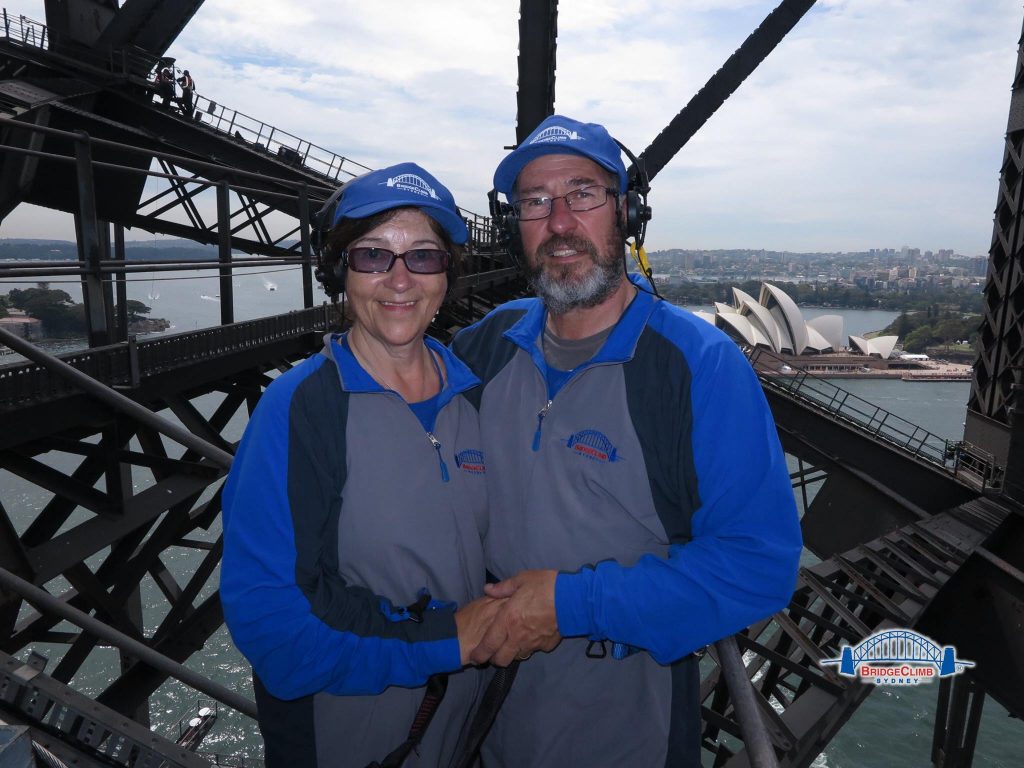We all have fears to face – heights, spiders, deciding that we can’t go for the promotion due to far of possible success. These fears can hold us back, and we need to look for ways to address them.
On December 30th, 2016, I did the bridge climb at Sydney, a big decision for someone scared of heights, but I knew if I didn’t do it, I would be full of regret (I’m unlikely to go to Sydney again).
We were the last group to do the climb in 2016 and I was the last member of the public to get off the bridge.
What helped me and is relevant to any fears we have in the workplace include:
Self-talk: Too often we say unhelpful things to ourselves, we say we won’t get the job, everyone else is more intelligent than us, and for me on the bridge I’ll freeze and not be able to move forward. So, I said STOP to myself as these thoughts came into my head and told myself that I’d be safe.
If you are nervous about an upcoming interview stop thinking that the other candidates are better than you, focus instead on the reasons that you are perfect for the job. Practice and preparation will help increase your confidence.
Breathing: when we get scared our breathing becomes shallower. This is how our body prepares to fight or flee from a threat. By focusing on our breathing and slowing it down our body will relax. From the day before, (each time I went into imagining the event) I focused on slow breathing counting in for 3, holding for 6 and breathing out slowly. It worked there and works when I have an injection, it stops me feeling the pain.
If you find your breathing becomes shallow in stressful events, use this technique to release the stress.
Distraction: It’s so easy to worry in advance about what might happen, so I kept myself busy and that helped deal with worry. I purposely booked the climb for our first full day in Sydney. On the climb, we had commentary through our head set on the history of the bridge, and of course had the views, this stopped my thinking of what could be.
When you are getting nervous before an interview and you know you have done enough preparation do something else, read a magazine, listen to some music, go for a walk.
Prepare: On my holiday I did a tree top walk, at Walpole in Western Australia. This was up in the tree canopy. It’s high but I felt safe. The floor may have been made of mesh, but there was a handrail and sides. I realised that the harbour bridge would be similar. This was almost like a trial run before I had my last chance to cancel. This helped to allay my fears.
I also rode on the world’s longest chairlift in Launceston, Tasmania and although scary I did fine.
On the day of the climb we had a comprehensive briefing in advance including practice at going down the ladders at the end of the climb. This helped me to know what to expect. For me this final stage of the climb was the worst but having done it in the briefing area I knew what to expect.
This is where interview coaching can help, practice in a safe environment to experience what it could be like and with some guidance to put you in the right direction.
Ground yourself: This was good advice, if I felt a bit wobbly, to push my feet down into my shoes so I could feel something solid and to grip the handrails firmly.
This could be a useful technique in other circumstances, feel the ground beneath your feet and know that you are in control.
Facing our fears can increase our confidence and get us ready for something else. For my 25th birthday I went to Alton Towers and did some of the scary rides, within a few weeks I’d signed up for contact lenses. The day after this climb I went to an exhibition on spiders. I’m not sure what fear I’ll face next, but I have this experience to refer to.
I’d love to know about fears you have faced, and what you have gained from them. Yes, we can go through life, and play it safe, but we are meant to live and as long as we will be safe, I highly recommend facing a fear.
